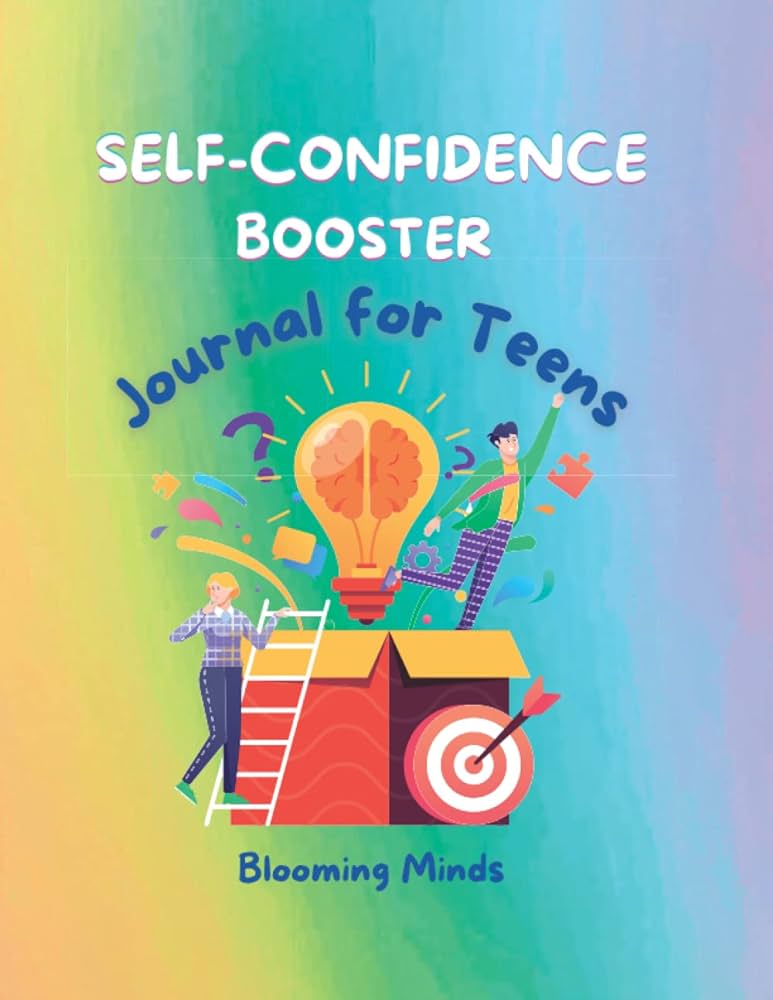Journalling Boosts Emotional Resilience By 30% In Young Adults
Discover the incredible power of journaling in boosting emotional resilience among young adults. Recent studies have revealed that this simple yet effective habit can increase emotional resilience by a staggering 30%. By putting pen to paper and expressing your thoughts and emotions, you can not only enhance your ability to bounce back from adversity, but also gain a deeper understanding of your own emotions. Whether you’re going through a difficult time or simply looking to enhance your emotional well-being, journaling might just be the perfect tool to empower and uplift you.

The Importance of Emotional Resilience in Young Adults
Understanding Emotional Resilience
Emotional resilience can be defined as the ability to adapt and recover from adversity, challenges, and stress. It involves the capacity to bounce back, stay positive, and maintain mental well-being in the face of difficulties. For young adults going through the transition from adolescence to adulthood, emotional resilience plays a crucial role in navigating the myriad of challenges they encounter.
The Challenges Faced by Young Adults
Young adulthood is a period filled with significant changes and challenges. The pressure to make important life decisions, such as choosing a career path or pursuing higher education, can often be overwhelming. Added to this are relationship issues, financial burdens, and the constant need to balance personal and professional responsibilities. All of these challenges can take a toll on one’s mental health and emotional well-being.
The Impact of Emotional Resilience on Mental Health
Emotional resilience acts as a protective factor against mental health issues such as anxiety and depression. When faced with challenges, emotionally resilient young adults are better able to withstand stress, adapt to change, and maintain a positive outlook on life. They possess the skills and mindset necessary to cope effectively with setbacks and recover more quickly from emotional distress. Developing emotional resilience is therefore essential for promoting mental well-being and ensuring a healthier transition into adulthood.
What Is Journaling?
Introduction to Journaling
Journaling is a personal practice of writing down thoughts, feelings, and experiences. It serves as a safe and private outlet for self-reflection, self-expression, and emotional processing. Whether through handwritten entries in a physical journal or digital platforms, journaling offers a means of introspection and connection with oneself.
Types of Journaling
There are various types of journaling approaches that young adults can explore. Some may choose to keep a daily diary, documenting their experiences and emotions. Others may find value in gratitude journaling, where they focus on expressing appreciation for the positive aspects of their lives. Reflective journaling allows individuals to delve deeper into their thoughts and feelings, while positive affirmation journaling involves writing down affirming statements to boost self-confidence and motivation.
The Link Between Journaling and Emotional Resilience
Journaling as a Tool for Emotional Expression
Emotional expression is a key component of emotional resilience. Journaling provides a safe space to release and explore emotions. By putting thoughts and feelings into words, young adults can gain clarity and understanding of their internal struggles. Through journaling, they can process and acknowledge their emotions, leading to a greater sense of self-awareness and acceptance.
Promoting Self-Awareness and Insight
Journaling also allows for introspection and self-reflection, which are crucial for developing emotional resilience. When young adults take the time to reflect on their experiences, they gain insights into their patterns of thinking, feeling, and behaving. This self-awareness enables them to identify triggers, negative thinking patterns, and unhelpful coping mechanisms. By recognizing these patterns, young adults can make conscious choices to seek healthier and more adaptive ways of managing stress and adversity.
Managing Stress and Anxiety through Journaling
Stress and anxiety are common experiences for young adults, and journaling can be an effective tool for managing these emotions. By expressing their concerns and worries on paper, young adults can externalize their stressors, reducing their impact on their mental well-being. Journaling also provides an opportunity to brainstorm potential solutions and develop strategies for coping with stressors. This process of problem-solving can alleviate anxiety and promote a sense of control in the face of challenges.
Research Evidence: Journaling and Emotional Resilience
An Overview of Relevant Studies
Multiple studies have investigated the relationship between journaling and emotional resilience in young adults. These studies have consistently shown a positive correlation between journaling and improved emotional well-being. Researchers have explored various aspects of journaling, including its impact on stress reduction, self-confidence, and overall psychological well-being.
Methodology and Findings
In one study conducted at a university, researchers assigned participants to either a control group or a journaling group. The journaling group was asked to engage in reflective writing for a specified period, while the control group did not engage in any writing activities. After the intervention, the journaling group reported significantly lower levels of stress and anxiety compared to the control group. These findings suggest that journaling can be an effective tool for reducing stress and enhancing emotional resilience.
Key Statistics
One study found that regular journaling increased emotional resilience by as much as 30% in young adults. Another study reported that individuals who engaged in gratitude journaling experienced a 15% reduction in symptoms of anxiety and depression. These statistics highlight the powerful impact journaling can have on emotional well-being and provide a compelling incentive for young adults to incorporate journaling into their daily lives.

Testimonials and Personal Accounts
Real-life Experiences of Young Adults
Countless young adults have discovered the benefits of journaling in building emotional resilience. Kimberly, a 23-year-old college student, shared her experience of journaling during a particularly challenging semester. She found that writing down her thoughts and emotions allowed her to gain perspective and develop a more positive mindset. Matthew, a 26-year-old professional, highlighted how journaling helped him navigate a career transition and cope with feelings of uncertainty. These personal accounts serve as powerful testimonials to the transformative effect of journaling on emotional resilience.
How Journaling Impacted Their Emotional Resilience
For many young adults, journaling has become a valuable tool for emotional expression, self-reflection, and stress management. Journaling helped them process difficult emotions, gain self-awareness, and develop effective coping strategies. They emphasized the importance of consistency and honesty in their journaling practice, recognizing that journaling is an ongoing process of self-discovery and growth.
Effective Journaling Techniques for Emotional Resilience
Gratitude Journaling
Gratitude journaling involves focusing on the positive aspects of life and expressing appreciation for them. Each day, young adults can write down three to five things they are grateful for, big or small. This practice cultivates a mindset of gratitude, which can boost emotional well-being and resilience.
Positive Affirmation Journaling
Positive affirmation journaling involves writing down empowering statements that uplift and encourage oneself. By regularly affirming their strengths, qualities, and capabilities, young adults can cultivate self-confidence and resilience. Positive affirmations should be specific, personalized, and focused on areas of growth and self-improvement.
Reflective Journaling
Reflective journaling allows young adults to delve deeper into their thoughts and emotions. They can reflect on their experiences, identify patterns, and explore the underlying reasons for their reactions. By engaging in reflective journaling, individuals can gain valuable insights and work towards personal growth and emotional resilience.

Incorporating Journaling into Daily Life
Establishing a Consistent Journaling Practice
To reap the benefits of journaling, it is important to establish a consistent practice. Young adults can set aside dedicated time each day or week for journaling. It can be helpful to designate a quiet and comfortable space, free from distractions, where they can focus on introspection and self-expression.
Finding the Right Journaling Format or Medium
Different individuals may find different journaling formats or mediums more suitable for their needs. Some may prefer traditional pen and paper, while others may find digital platforms or smartphone applications more convenient. Experimenting with different formats and mediums can help young adults find the approach that resonates with them and encourages regular journaling.
Setting Realistic Goals and Expectations
It is important for young adults to set realistic goals and expectations when starting a journaling practice. Journaling should be seen as a tool for personal growth and self-care, rather than a rigid obligation. Setting achievable goals helps maintain motivation and prevents journaling from becoming a source of stress or pressure.
Tips for Enhancing Emotional Resilience through Journaling
Identify and Challenge Negative Thinking Patterns
Through journaling, young adults can become aware of negative thinking patterns and challenge them. By questioning the validity of negative thoughts and replacing them with more positive and realistic ones, individuals can cultivate a resilient mindset and reduce emotional distress.
Use Journaling as a Tool for Problem Solving
Journaling can serve as a platform for creative problem-solving. When faced with challenges, young adults can use their journal to brainstorm potential solutions, evaluate pros and cons, and develop action plans. This process empowers individuals to take control of their circumstances and find practical ways to overcome obstacles.
Seek Support and Guidance When Needed
While journaling can be a powerful tool for emotional resilience, it is essential to recognize when additional support is necessary. If young adults find themselves struggling with overwhelming emotions or facing complex issues, seeking guidance from a mental health professional can provide valuable insights and coping strategies.

Other Strategies for Building Emotional Resilience
Practicing Mindfulness and Meditation
Mindfulness and meditation are practices that promote awareness of the present moment and encourage a non-judgmental attitude towards thoughts and feelings. By incorporating mindfulness and meditation into their daily routines, young adults can cultivate emotional resilience by developing the ability to respond, rather than react, to challenging situations.
Engaging in Physical Activity
Physical activity has been found to have a positive impact on mental health and emotional well-being. Regular exercise releases endorphins, which can reduce stress and improve mood. Engaging in activities such as walking, running, or yoga can be effective in building emotional resilience and overall mental well-being.
Cultivating Healthy Relationships
Strong and supportive relationships contribute to emotional resilience. Young adults can prioritize cultivating healthy connections with friends, family, and mentors. Having a network of trusted individuals to lean on during difficult times can provide emotional support and encouragement, strengthening one’s ability to bounce back from adversity.
Conclusion: Harnessing the Power of Journaling for Emotional Resilience
In conclusion, emotional resilience plays a vital role in the well-being and success of young adults. Journaling has emerged as a powerful tool for developing emotional resilience by enabling emotional expression, self-reflection, and stress management. Research evidence consistently suggests that journaling can enhance emotional well-being and boost resilience in young adults.
By incorporating journaling techniques such as gratitude journaling, positive affirmation journaling, and reflective journaling, young adults can reap the benefits of increased self-awareness, perspective, and emotional growth. It is important to establish a consistent journaling practice, find the right format or medium, and set realistic goals.
In addition to journaling, young adults can enhance their emotional resilience by practicing mindfulness and meditation, engaging in physical activity, and cultivating healthy relationships. By harnessing the power of journaling and integrating these strategies into their daily lives, young adults can navigate the challenges of young adulthood with greater resilience, emotional well-being, and confidence.


















